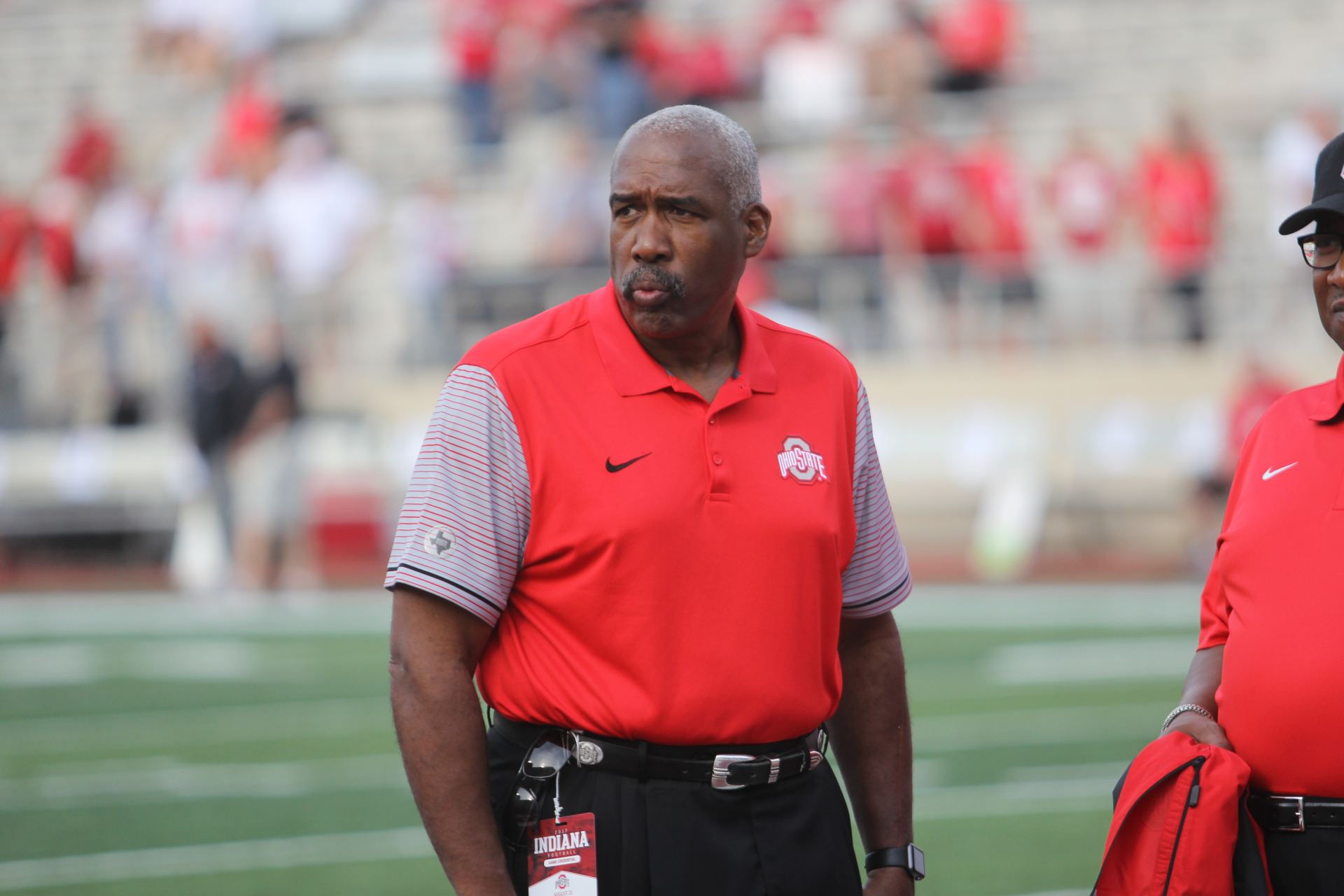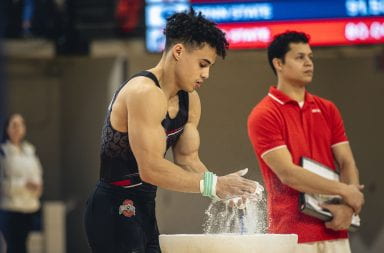
Courtesy of MCT
NCAA president Dr. Mark Emmert speaks to the media during the Final Four press conference in Atlanta, Georgia, on Thursday, April 4, 2013.
When NCAA president Mark Emmert announced Thursday that the governing body of college sports is putting an end to its jersey sales, the news sent shock waves across the country.
But why does this really matter?
Is this decision going to lead to bigger ones in the near future? WillEmmert and the NCAA instead start making formidable payments to its players?
Emmert said on Thursday he realizes the organization’s actions could be seen as hypocritical.
“In the national office, we can certainly recognize why that could be seen as hypocritical, and indeed I think the business of having the NCAA selling those kinds of goods is a mistake, and we’re going to exit that business immediately,” Emmert said. “It’s not something that’s core to what the NCAA is about, and it probably never should have been in the business.”
It sounds like Emmert feels good about fixing what he simply calls the NCAA’s “mistake.” This recognition sounds to me like he’s pleased with himself for “doing the right thing.”
A 2011 federal tax return indicated that Emmert made nearly $1.7 million annually, including $23,689 in what was labeled “nontaxable benefits,” according to USA Today. With a five figure sum like that, it could look like he and his buddies took a quite large scoop from the jersey sales pot. He has no reason to feel happy about halting jersey sales.
Even though Emmert’s bank account may take a hit, fans of all sports are still going to pay their money to get their apparel, and the cash used in these transactions will just be funneled to different institutions like Nike, Reebok and Adidas, as well as the schools that they represent. All that’s really happening is the NCAA will stop making some money off these talented athletes who people pay obscene amounts of money to watch during the year.
It’s probably the right move for the NCAA, so it can try and keep the word “amateur” relevant in college sports by setting college athletes aside from the pros somehow. But in the view of ESPN college basketball analyst Jay Bilas, “amateur” is not a word that’s been appropriate in college sports for years.
Bilas has publicly criticized the NCAA for everything from not paying college players to selling their jerseys on its ShopNCAAsports.com website. He reportedly typed in the names of high-profile players like Texas A&M quarterback Johnny Manziel, South Carolina defensive end Jadeveon Clowney and Clemson quarterback Tajh Boyd, among others, into the site’s search bar and found their matching jerseys. This caused the search function to be disabled by the site, probably because the NCAA feared that it looked like they were using these players’ talents to make money for themselves.
I have a suspicion that the bigwigs of the NCAA were reaping the benefits of selling these players’ jerseys to the general public. Now that the practice has been shut down, though, the NCAA officials are seemingly proud of themselves. But what are they really proud of? Doing something that should have never happened in the first place? Good work!
Who knows how long it would have taken for the NCAA to fix this “mistake” had Bilas not brought it into the public eye. Certainly the NCAA wouldn’t have halted the sales on its own.
The bottom line is people are not going to change the way they cheer for their teams. Fans will still offer up the dough so they can dress like their favorite players.
What exactly is going to be different after this change?
The brands who produce jerseys and other college apparel will make a few more bucks, but passionate fans will still get their favorite uniforms. They will still support their team the same way, and will not have a second thought about it.
Congratulations NCAA, you have done well to put an end to something that made you look like all you care about is filling your pockets with dirty money. Credit is simply due to Bilas for pointing that out.
Maybe this is the first domino to fall to spell the end of the NCAA. Maybe Emmert and other NCAA executives will implement changes to college sports that will make those like Bilas believe that these athletes really are amateur. Or maybe we are a few steps away from all college athletes getting paid for what they do. Time will tell.
Hopefully, the governing body of college sports makes a ground-breaking decision again soon. But regardless, it won’t change the way fans watch their sports.


